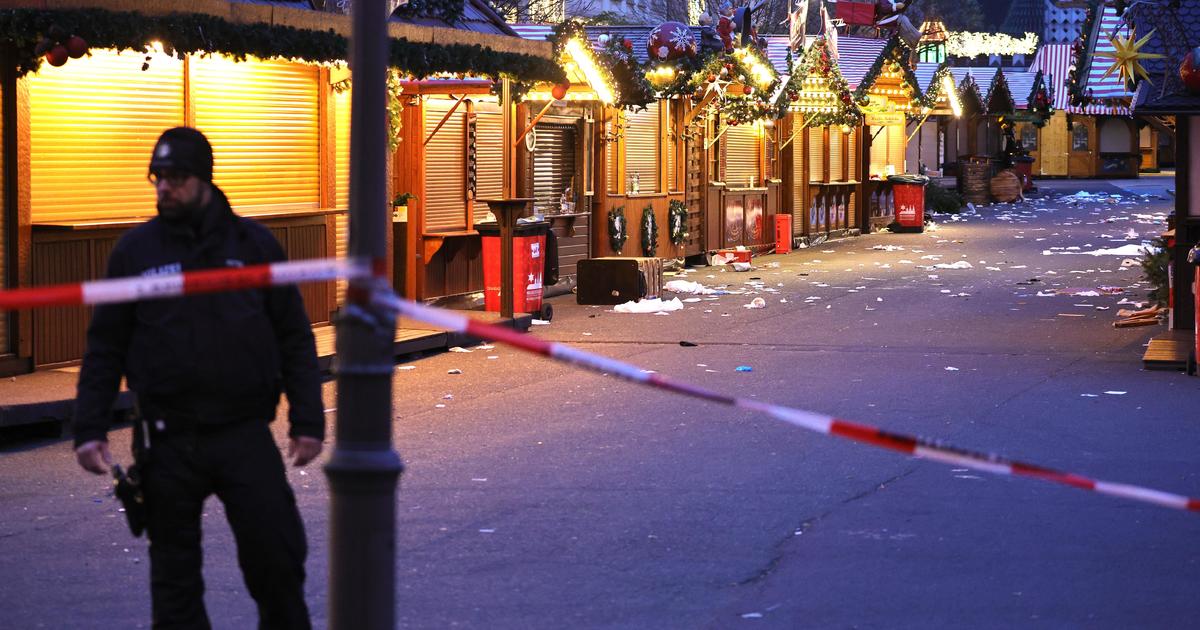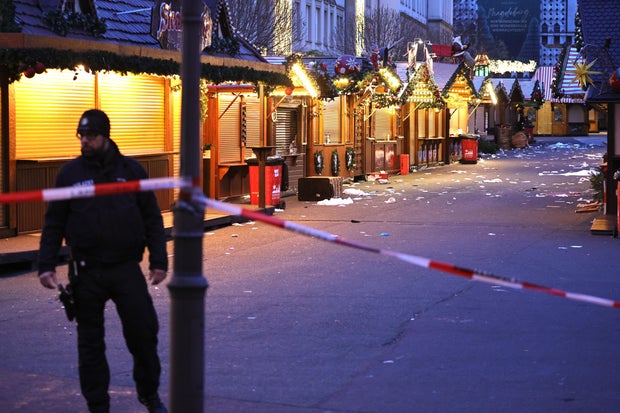
A German official says the suspect in the Christmas market attack is showing signs of mental illness
The German government is under fire for failing to prevent a fatal attack on a car Christmas Fair, Monday said the tragedy would have been difficult to prevent and said the suspect appeared with mental disorders.
Home Secretary Nancy Phaser, along with security and intelligence chiefs, were questioned by a parliamentary committee about the attack, which killed five people and injured more than 200, and whether there were missed leads and security lapses.
Feiser said the motive for the Dec. 20 attack in the eastern city of Magdeburg, where a Saudi-born doctor who had lived in Germany for years, was arrested, but he said “there are clear signs of a pathological psyche.”
He added that lessons need to be learned on how to follow through potential attackers who do not fit conventional threat categories and who are “mentally disturbed and … driven by confused conspiracy theories.”
The minister insisted that “such attackers do not fit any threat profile” such as far-right extremists or Islamists, and warned that German security services would need “different indicators and action plans” to combat them in the future.
The suspect, identified by German officials as Taleb A., has been identified BBC News and the AFP news agency as Taleb al-Abdulmohsen. He came to Germany in 2006 and received refugee status 10 years later.
Omer Messinger/Getty Images
Police arrested him at the scene of the attack, which used a motor vehicle previously used in jihadist attacks as a weapon.
Islamic extremist in 2016 plowed through a crowded Christmas market in Berlin with a truck, as a result of which 13 people were killed and dozens of people were injured. The attacker was killed in a shootout a few days later. same year ISIS claimed responsibility after another attacker killed 86 people in a truck rampage French city of Nice.
By contrast, Abdulmohsen has previously expressed strong anti-Islam views and sympathies for the far right in his social media posts, as well as anger at Germany for admitting too many Muslim war refugees and other asylum seekers.
Feiser said there were “tens of thousands of tweets” the suspect posted over the years that have yet to be fully examined.
“That explains why everything is not on the table,” he said.
Reuters reported that he posted a scathing commentary on “X,” among other things, blaming alleged liberalism in Germany for the death of the ancient Greek philosopher Socrates and accusing the police of stealing a USB drive from him and destroying a criminal complaint he filed.
Abdulmohsen, 50, is the only suspect in the attack, when a rented BMW sports car drove at high speed through a crowd of revelers, leaving a bloody trail of carnage.
He has been charged with 5 murders and 205 attempted murders, but not terrorism-related charges so far.
Rainer Haseloff, the state premier of Saxony-Anhalt, described it as a “lone attack” at the time.
According to the media, citing unnamed German security sources, the suspect had previously been treated for mental illness and had tested positive for drugs on the night of his arrest. German media investigations into Abdulmohsen's past and his social media posts found expressions of anger and frustration, as well as violence. threats against German citizens and politicians.
German police said they made contact with Abdulmohsen in September 2023 and October 2024, then tried repeatedly, but only met him again in December.
According to Reuters, Holger Münch, head of the Federal Criminal Police Office (BKA), said Abdulmohsen had “hurled insults and even threats. But he was not known for acts of violence.”
This was told by Chancellor Olaf Scholz to the news site, who is expected to hold general elections in February T-online: that officials would “examine very closely whether there were any lapses on the part of the authorities” and whether any leads were missed in the run-up to the attack.
Saudi Arabia said it had repeatedly warned Germany about Abdulmohsen, but according to Reuters, police said they considered the allegations too vague.
In front February electionsThe bloodshed at the Christmas market has reignited heated debates about immigration and security after deadly knife attacks this year blamed on Islamist extremists.
After Monday's hearing, Free Democrat lawmaker Constantin Kuhle said that “federal and state authorities knew this criminal.” But Kuhle said that no authorities have connected all the dots and that “as of today, we don't have all the contacts with the authorities.” full list”.
Feiser said having a more complete view of all the data would have been nice, but probably “wouldn't have prevented” the attack.
Gottfried Curio, a lawmaker from the far-right and anti-immigration Alternative for Germany party, was the most vocal in his criticism.
“Everything was predictable for everyone,” he said. “We have hundreds of dangerous people in this country, we let them run.
“We need deportations, instead we get naturalization. We need a change in security policy in this country now.”

